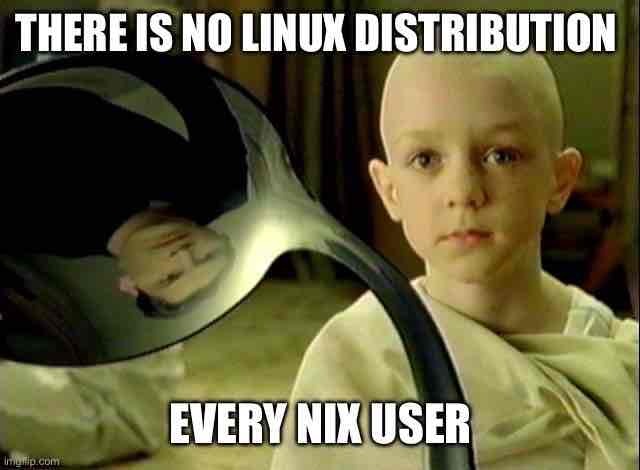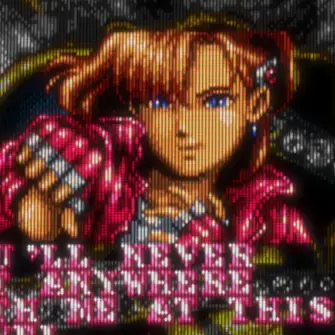When I read through the release announcements of most Linux distributions, the updates seem repetitive and uninspired—typically featuring little more than a newer kernel, a desktop environment upgrade, and the latest versions of popular applications (which have nothing to do with the distro itself). It feels like there’s a shortage of meaningful innovation, to the point that they tout updates to Firefox or LibreOffice as if they were significant contributions from the distribution itself.
It raises the question: are these distributions doing anything beyond repackaging the latest software? Are they adding any genuinely useful features or applications that differentiate them from one another? And more importantly, should they be?
I think it is a sign the Linux ecosystem is mature, boring is good in software in my opinion.
wouldn’t think so. automatic upgrades is as essential feature for desktop systems, yet they are nit really here. I can’t appear at the dozens of my friends (significant amount of them elder) to upgrade their systems every few weeks or a month, or when e.g. firefox gets a critical vulnerability fix
Automatic updates are there with the right distro. Which highlights the need to look around for the right distro for the use case.
Example being Opensuse Aeon - automatic updates - doesn’t even tell you it’s happening, just pops up “your system was updated” out of nowhere
Automatic rollback - if an update broke something you would never know, at boot the system will pick the previous snapshot with no user intervention
As far as the user is concerned you just have a working system; that it is the entire goal of that distro
Yes, absolutely. When you look at the innovations happening to Windows recently like Copilot integration and Recall I’m glad that Linux is “boring”
For me distro’s role is to repackage things and then test them to check if they work together. Kinda like a premade sandwitch.
Yeah, I’d rather the distro be as boring as possible while the exciting stuff happens upstream.
There are 2 kinds of distributions. Ones that are on customization side and those on stability side.
For example Debian, Fedora, and arguably Arch are on stability side. They are intended for people that want things to work predictably and software to be packaged and shipped as the developer intended it. Customization or lack of it is up to the user.
Distributions like Manjaro, Zorin OS, Elementary OS, LMDE or even Linux XP are have a given goal to a particular customization. Either a set of tweaks, a particular look or even their own desktop environment or set of software they develop themselves.
This means that the first kind would have the most boring update, as they just ship new and correctly integrated software. While the second kind would provide very nice customisations or patching of their own to their environment.
A distro is composed of:
- an installer
- base system (bootloader, filesystems, service runner, DE, basic apps, settings)
- packet manager and packaged software
- an updater between releases
The biggest things you notice are updated packages. Many of the base-system differences aren’t even pushed to updated installations. Most of what the user sees as °the os° is the DE anyway.
You should use Arch, btw
Since I started using the Nix package manager and switched to NixOS, the notion of a “Linux distribution” faded into little more than “A bootloader + the Linux kernel + some userspace programs”.

The same happens with any of the new immutable distributions. It’s just less effort as you do not need to do the nix configuration dance anymore.
You seem to be comparing a distro release to a new game release. It’s not. A distro is not always exciting because their top priority is having a working system. This means dealing with all the boring stuff.
It feels like there’s a shortage of meaningful innovation
You can look at this in another way: Linux distros are getting mature
are these distributions doing anything beyond repackaging the latest software?
You’re saying it like packaging the latest software is a trivial task.
typically featuring little more than a newer kernel, a desktop environment upgrade, and the latest versions of popular applications
If you don’t think these are meaningful to you, I don’t know what is.
Try phoronix.com if you want a more cutting edge reporting. They’re quite opinionated, but they’re usually on point about the exciting stuff.
comparing a distro release to a new game release
- pay a LinuxGem each time you open a terminal
- Flatpak is only available as a paid DLC
- use your LinuxGems to purchase randomized LootContainers with a chance of winning a Jellyfin install
Linux distros are getting mature
I think this is exactly it. Back in the early days of Fedora and Ubuntu a new release often meant major bug fixes, new software, and possibly a significant qol/usability changes and performance changes. Now, its all new versions of stable software, which all behave roughly the same. Which is exactly what you want in a daily driver OS. Stability.
Pop_OS! is about to drop a whole new desktop environment (COSMIC) made from scratch that’s not just a fork of Gnome. Canonical tried that as well a while back with Unity although it was mostly still Gnome with extra Compiz plugins.
A lot of cool stuff is also either for enterprise uses, or generally under the hood stuff. Simple packages updates can mean someone’s GPU is finally usable. Even that LibreOffice update might mean someone’s annoying bug is finally fixed.
But yes otherwise distros are mostly there to bundle up and configure the software for you. It’s really just a bunch of software, you can get the exact same experience making your own with LFS. Distros also make some choices like what are the best versions to bundle up as a release, what software and features they’re gonna use. Distros make choices for you like glibc/musl, will it use PulseAudio or PipeWire, and so on. Some distros like Bazzite are all about a specific use case (gamers), and all they do is ship all the latest tweaks and patches so all the handhelds behave correctly and just run the damn games out of the box. You can use regular Fedora but they just have it all good to go for you out of the box. That’s valuable to some people.
Sometimes not much is going on in open-source so it just makes for boring releases. Also means likely more focus on bug fixes and stability.
Hey, if you don’t think distributions are doing anything, you can always use Linux From Scratch.
Seriously though, most of the work done by good distros is specifically so you don’t notice things. They make a bajillion independent open source projects work together nicely. That’s something I’m glad I don’t have to do myself.
As someone who recently switched to Arch (btw) I finally figured out how much work the distros were doing in the background. Between default applications and configurations, there was a lot of stuff I had to learn to do on the fly. I’m happy with my system now though, since it’s just the way I wanted it to be.
Maybe I’m just old, but I thought a distribution is literally just a package delivery basically, just like you speculated. Making software work together nicely is actually already hard enough IMO. I don’t think anything is wrong. Valid question though
I was thinking that exact thing lol. I’m like, yes ‘distributions’ are distributing new softwares with the new kernel.
And the improvement in desktop environments does feel like a good improvement considering the user is interacting most with it.
Or maybe I’m just apathetic to these things because most things I care about my distribution are that it provides me a good package manager for external and self made programs. And everything else is just programs installed through said package manager.
A boring release is the best kind of release. It means that most of the effort went into stability, compatibility, and bugfixes.
If you want updates to be exciting, install Arch, but only update it once every six months. You can even run bets on which system inroduces some breaking change that forces you to reach into its guts.
Bring on the boring! Its what lets me daily Linux as a real alternative to windows. I love that my system gets constant updates, I get to pick when they install, it goes out of its way to NOT overwrite my preferences and settings, it maintains the look and feel I set it to, and it stays stable.
I wouldn’t know, I use Arch (btw)
there’s a special level of hell reserved for people like us
Honestly, when you say
are these distributions doing anything beyond repackaging the latest software?
— I have to wonder what you think is so trivial about keeping your system current with latest bug fixes and security updates?
I don’t need or want a distro to radically reinvent itself with every release. I had enough of that fuckery with Windows, way back when — incidentally, also a direct reason I quit that OS. And seeing “big changes” like Ubuntu deciding to functionally deprecate deb packages is… unappealing to me as well.
There are probably sexier updates going on in DEs, but (insofar as a distro isn’t wedded to one particular desktop environment) I’m fine to let them hog that glamour.
Short answer: yes, and that’s a good thing.
Slightly longer answer: it’s a sign of maturity for the most popular distributions and of the platforms at large. Innovation tends to happen in the fringes. Being it free software, someone can always fork the software and add their new ideas to the mix.











